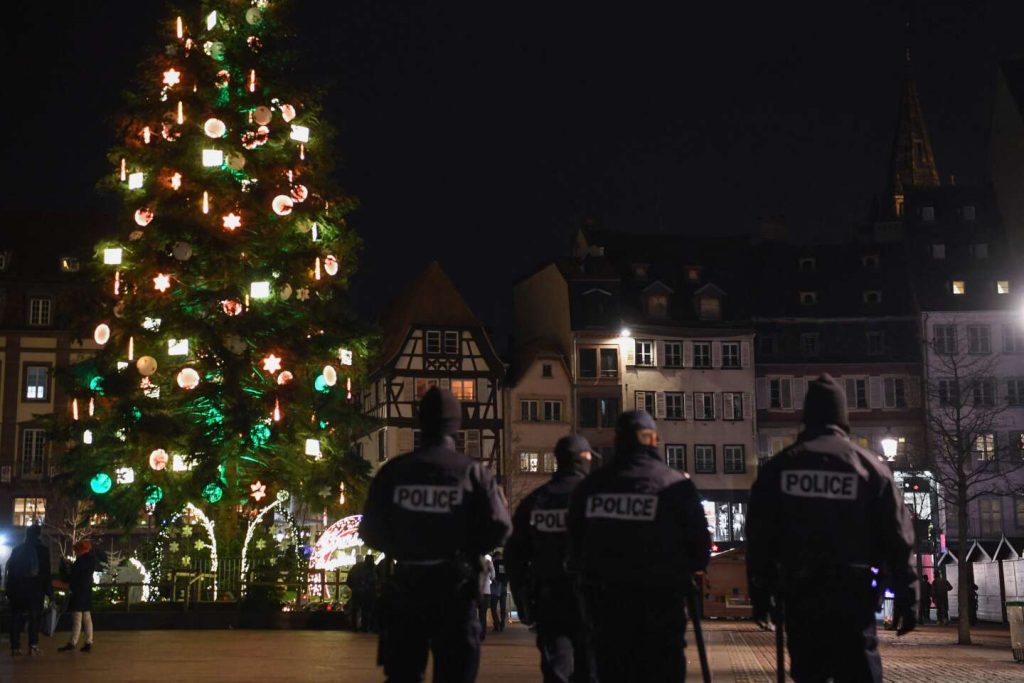In the aftermath of the terrorist shooting at Strasbourg’s Christmas market on December 11, 2018, police officers patrol the area near the market. Two days before the sentencing, the public prosecutor had requested a heavy penalty of thirty years of criminal imprisonment for the main accused, Audrey Mondjehi. However, on April 4th, the president of the special assize court of Paris, Corinne Goetzmann, declared him “not guilty” of the most serious crime of complicity in terrorist killings. Instead, Mondjehi was found guilty of the lesser offense of terrorist conspiracy, for which he was sentenced to thirty years in prison with a two-thirds security period and a lifelong ban from French territory.
Audrey Mondjehi, a 42-year-old man born in Ivory Coast who came to France at the age of 9, was known for his brief stint as a rapper in Alsace and extensive criminal history. He had been on trial for five weeks for providing weapons to his neighborhood friend, Chérif Chekatt, including the pistol used by Chekatt to kill five people on December 11, 2018. The court found that Mondjehi had not been aware of Chekatt’s intentions to use the weapon in a terrorist attack that evening, leading to the acquittal of the more severe charge of complicity in terrorist killings.
The crime of terrorist conspiracy is broader in scope, requiring only that the accused was aware of the radicalization of the perpetrator of the attack when providing assistance, without knowledge of specific plans. Due to his close relationship with Chérif Chekatt, the court determined that Mondjehi must have been aware of Chekatt’s radicalization. The president of the court cited Mondjehi’s extensive criminal record of twenty-four convictions as well as his lack of remorse or reflection on his actions during the trial as reasons for the severity of the sentence.
The judgment highlights the legal framework of the case and the distinction between the charges of complicity in terrorist killings and terrorist conspiracy. Despite being found guilty of terrorist conspiracy, Mondjehi was acquitted of the more serious charge due to the lack of evidence linking him directly to the planning or execution of the terrorist attack. The court’s decision reflects the complexity of determining the level of involvement and knowledge required to establish guilt in cases of terrorism.
In conclusion, Audrey Mondjehi received a thirty-year prison sentence for his role in providing weapons to the perpetrator of the Strasbourg Christmas market terrorist attack. While he was acquitted of complicity in terrorist killings, he was convicted of terrorist conspiracy based on his awareness of the radicalization of the attacker. The court cited his criminal history and lack of remorse as factors contributing to the severity of the sentence, emphasizing the importance of accountability and deterrence in cases of terrorism.


